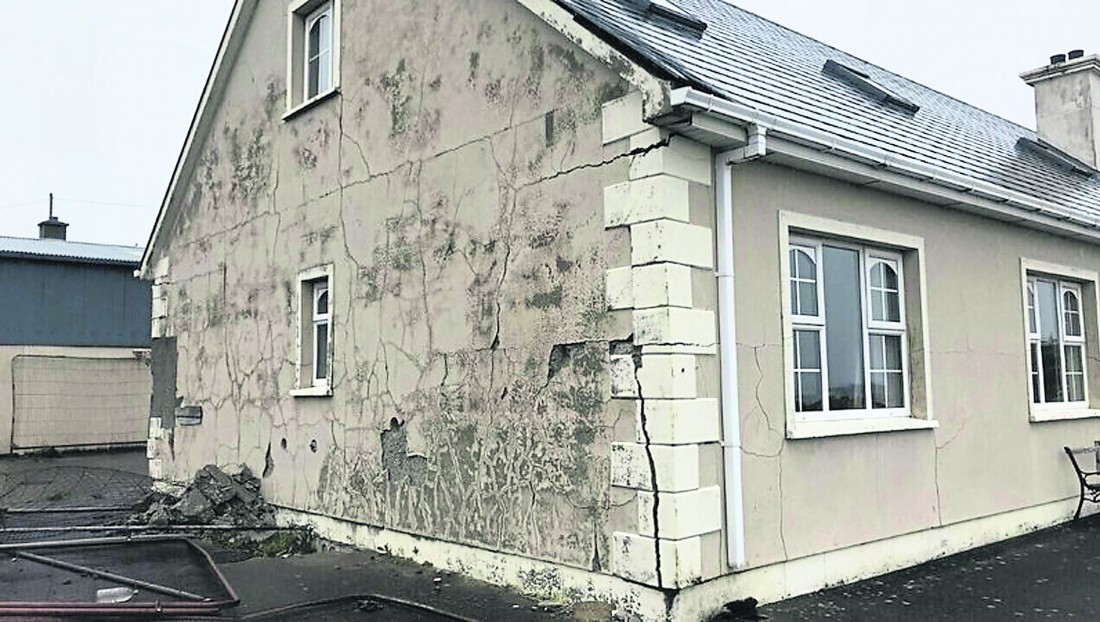By Kate Heaney
SCIENTISTS specialising in the analysis of concrete, mortar and render to identify degradation factors as well as the examination of rock, aggregate, building stone and slate have called for every house built in Donegal between 1990 and 2020 to be tested for defective materials.
Dr Christopher Brough and his colleagues at Petrolab have an article published in Construction and Building Materials Journal, an international journal dedicated to the investigation and innovative use of materials in construction and repair.
It reveals that they have tested concrete block samples from 1,800 properties in Donegal.
While they report that not all of the properties containing these high risk minerals showed evidence of damage at the time of the test they maintain there is a need to set up a testing regime for properties built between 1990 and 2020 which are not currently displaying damage which may be bought or sold in the county.
“Failure to do so will place unacceptable risk on homeowners, buyers and lenders,” they warned.
The scientists found that the presence of the mineral pyrrhotite and mica together poses the greatest long-term risk to the structural integrity of homes and properties affected will have to be demolished and rebuilt.
According to the Petrolab authors no property with mica alone has shown significant degradation. They have suggested outer leaf replacements may provide sufficient remediation for such homes.
The authors suggest that all homes built in the county in those years fall into the “at risk” category and should be tested for deleterious minerals.
The 2022 census shows that just over 8,000 homes were built in Inishowen alone between 1991 and 2020.
The Petrolab experts have also called for the establishment of a long-term concrete block testing regime to be established to assist with the sale of property in the county and the results could provide confidence to homeowners, buyers and lenders that their homes are safe.
The Cornwall based company took samples from more than 2,500 properties across the state over the past four years with around 1,800 coming from Donegal.
The laboratory found that 25 kinds of aggregate (crushed stone, sand and gravel etc) used in concrete block making with seven distinct types considered high risk due to the presence of significant levels of mica and pyrrhotite.
While mica is a deleterious factor in its own right, combining it with pyrrhotite will inevitably cause the most severe damage to concrete blocks.
The mineral pyrrhotite, which is an iron sulphide, turned up in numerous samples examined by Petrolab with at least 44 critically deteriorated samples and many more localised examples of damage observed.
The lab notes that as the testing has continued over the past four years more examples have been observed as the focus shifted towards pyrrhotite which is now acknowledged as the main cause of cracking.
Currently pyrrhotite is not recognised within the IS 465 testing protocol developed by the National Standards Authority of Ireland for assessing defective blocks but the protocol is under review.










